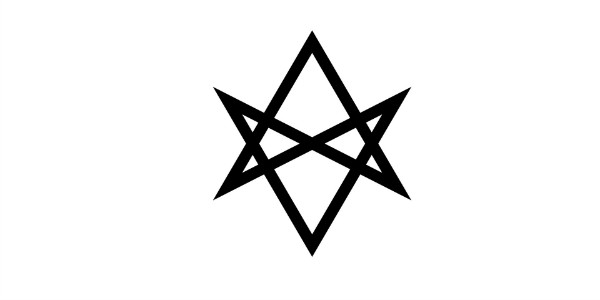Thelemites live by the Law of Freedom, “Do what thou wilt shall be the whole of the Law.” Is this a moral code? For comparison there is the Golden Rule, “Do unto others as you would have them do unto you.” Witches, Wiccans and Pagans can draw on the Rede, “An it harm none do what ye will.” Do these codes serve the same function?
The Golden Rule is instantly recognizable as a rule of thumb for human conduct. A version shows up in the Bible, Matt. 7:12, and Confucius taught it to his followers centuries earlier. The “silver rule” adds the corollary, “don’t do unto others what you wouldn’t have done to you.” The meditation here is to reflect on how you would like others to treat you and what you wouldn’t want them to do, and then to translate that set of ideas into positive conduct. I don’t like being shouted at, so I try not to shout at others; I like pleasant conversations, so I try to be cheerful.
The Golden Rule carries a whiff of moralism about it, like a Sunday school kid’s comic, an unrealistic ideal. This is the way we know we’re supposed to behave but we don’t. That Republican-bashing meme feels good when we post it but the liberal-bashing meme seems like an unfair dig. Fairness is the key here – “others” means everyone, the people we like and the people we don’t. The Golden Rule directly challenges sexism, racism, class distinctions, and other forms of inequality. For that reason maybe it deserves a new look.
The Wiccan Rede says, “Eight words the Wiccan Rede fulfill, An it harm none do what ye will.” Versions of this couplet show up in various poems by Doreen Valiente, for example The Witches Creed, and it is generally (though not universally) attributed to her. Jason Mankey explores the history of the Rede in The Rede of the Wicca.
What does “harm” mean? I’ve had many a late night discussion hashing out the implications. Too strict a definition of harm renders the rule impractical. Does that mean I can’t swat a mosquito? For a Jain this might be true. Suppose I have to shoot someone who’s trying to kill my family? One issue is that the prescription “if it doesn’t hurt anyone” is a negative. A quick definition could draw on the silver rule, don’t do anything you wouldn’t want done to you.
The other half of the Rede is proscriptive, “Do what you will.” This sounds similar to the Thelemic phrase from the Book of the Law, “Do what thou wilt shall be the whole of the Law.” Because the Rede and the Law are similar some claim Crowley “wrote” the Rede. He certainly did not, but just as certainly Valiente was familiar with Crowley’s version (as Mankey points out).
The difference between them is the qualifier “An it harm none.” As a young esotericist I was familiar with both Rede and Law but I was vastly more comfortable with the Rede’s phrase “An it harm none”. “Do what thou wilt” seemed harsh and even lawless.
Just this week a BBC article held up the phrase as an example of lawlessness. In A Point of View: Why not caring about anything is only for the young, Will Self quotes Dostoevsky:
Ivan [Karamazov] maintains that without belief in the possibility of an afterlife, one in which we will be judged for our sins, there can no longer be any moral stricture limiting our Earthly behaviour – we may fornicate, intoxicate and even murder as much as we want. If we were to paraphrase Ivan’s contention, it’s that in a godless world, “Do what thou wilt” constitutes the whole of the law.
It is exactly the misconception that “Do what thou wilt” condones violence that leads to the impulse to qualify the phrase with something like “if it doesn’t harm anyone”. In Living Thelema David Shoemaker explores Crowley’s essay on Duty, “A note on the chief rules of practical conduct to be observed by those who accept the Law of Thelema”. Shoemaker notes that the core unit of any group – marriage, family, country – is the individual, and it is the individual who bears responsibility for their own personal behavior.
For Crowley, the Law of Thelema requires not only that an individual exercise personal responsibility, but that every individual respects the Will of every other person. To harm another directly restricts the freedom of the one who is harmed. “Crime being a direct spiritual violation of the Law of Thelema, it should not be tolerated in the community,” he says clearly. The Law also extends to every being and object in the world; children, animals, plants, everything should be aided to its true purpose, and any misuse is a “crime against nature.”
Thelema excels at presenting challenges. The challenge of the radical formulation “Do what thou wilt shall be the whole of the Law” is to understand Will, which is our function in the universe. It places responsibility squarely on the individual to assure not only their own freedom, but the freedom of all others, which is the same thing. When we understand that our actions interact with the actions of other people, other creatures, other forces in the universe, we understand ourselves as part of that whole; this is the spiritual component of the law.
Each of these codes represents a spiritual point of view. It’s illuminating to meditate on the differences and similarities both in their messages and in how they function for the people guided by them.



